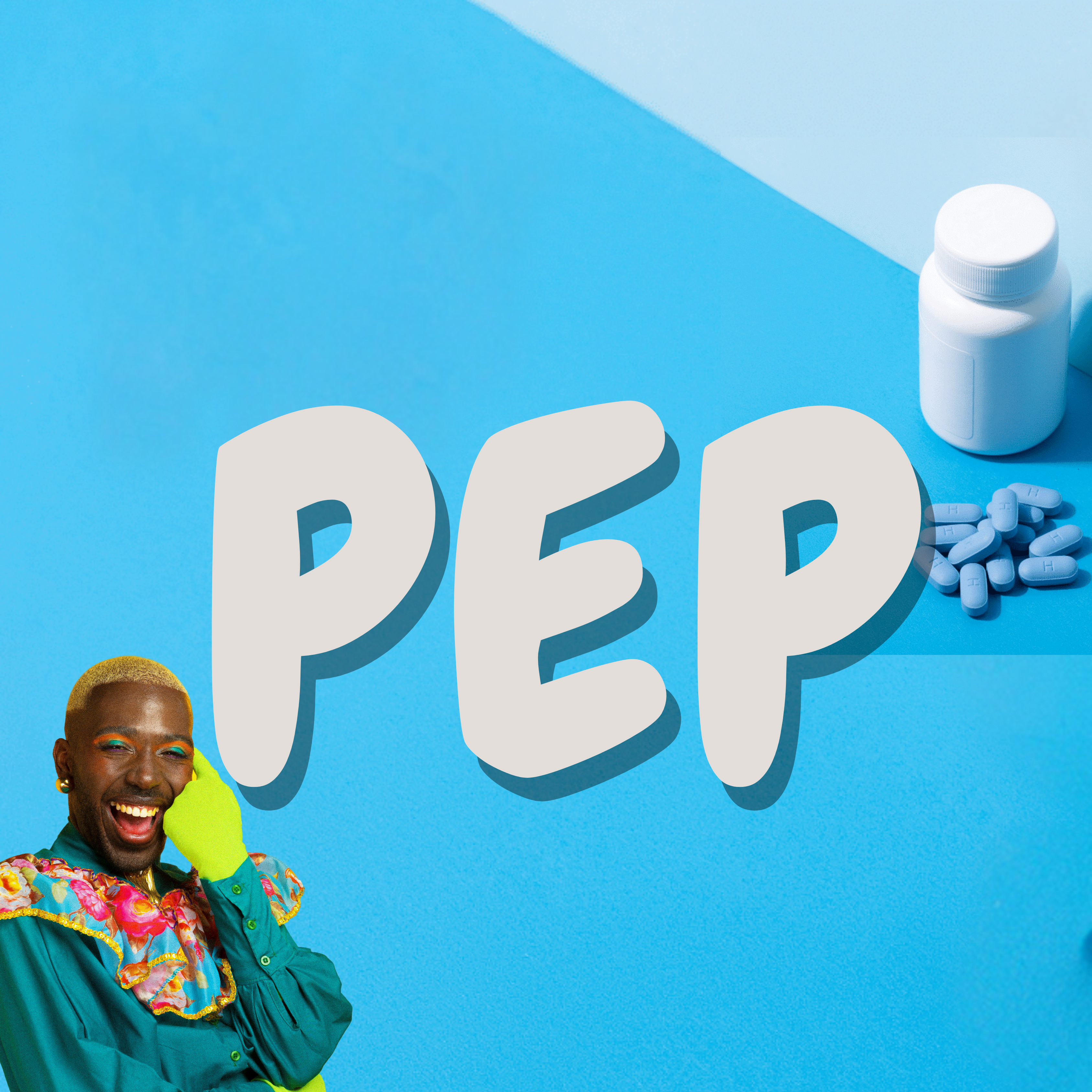
Understanding PEP
What is PEP?
PEP, which stands for "Post-Exposure Prophylaxis," is the medication you take if you think you may have been exposed to HIV ( through having sex without protection or sharing drugs) so as to protect you from getting HIV. It works better if you start PEP right away after being exposed
How does PEP work?
Post-Exposure Prophylaxis, or PEP, doesn't let the HIV virus multiply and spread through the body. It's like putting up a wall to stop the virus from really getting in and making you sick.
How well does PEP work?
Different things affect how well PEP (Post-Exposure Prophylaxis) works, such as how soon after exposure it's started, how often it's taken, and what kind of exposure it was.
If you start PEP within hours and no later than 72 hours (3 days) after being exposed to HIV, it can greatly lower your chances of getting HIV. Each hour is important.
According to some studies, taking PEP regularly and properly can cut the chance of getting HIV by as much as 80%.
When should someone start taking PEP?
If you think you may have been exposed to HIV:
• while having sex (like if the condom broke),
• by sharing needles, syringes, or other drug-injecting tools (like cookers), or after being sexually attacked.
It is very important to begin PEP right away. It will work better if you start early. If possible, PEP should be started within hours of exposure and not more than 72 hours (3 days) after exposure for the best chance of working.
What should you do while taking PEP?
Listen to what your healthcare provider tells you to do.
1. Take one pill every day: Keep things the same. Do not miss any amounts.
2. Take it for 28 days: Even if you feel fine before the course is over, finish it.
3. Keep an eye out for effects: Headaches, sickness, and diarrhea are some of the most common ones. Tell your doctor or nurse if you have any of these symptoms.
4. Don't do anything dangerous. While you're on PEP, keep practicing safer sex and don't share needles.
5. Follow up: As your healthcare provider tells you, go to any follow-up visits.
6. Get tested: Once you're done with PEP, make sure you're not sick with HIV by getting tested.
Things to know about PEP
If you think you might have been exposed to HIV, you should get PEP. PEP is not a replacement for other ways to avoid HIV. If you might be exposed to HIV a lot, PEP is not the best choice for you. Talk to your doctor about PrEP (pre-exposure protection) if you are at high risk for HIV because you have been exposed to it more than once.
Are there any side effects?
• Some common side effects of PEP are feeling sick, having diarrhea, being tired, and getting headaches. These side effects are generally mild and short-lived, but each person may feel them in a different way. It's important to talk to a healthcare expert about any worries or bad responses.
FAQs
Question 1: Is there any reason not to use PEP?
People who have certain medical problems or who are taking certain medicines may not be able to use PEP. To make sure PEP is safe and successful, it's important to tell your healthcare provider about all of your medical background and present medications.
2. Can I start PEP if I'm breastfeeding or pregnant?
People who have been exposed to HIV and are pregnant or breastfeeding can be given PEP. It is important to talk to a healthcare worker about the risks and benefits of PEP in these cases, though.
3. How often should I get an HIV test while I'm on PEP?
At the start of PEP treatment, at the end of treatment, and during follow-up visits, people are often told to get an HIV test. Based on a person's risk factors and situations, more tests may be suggested.
4. If I have bad side effects from PEP, what should I do?
If you have serious or long-lasting side effects from PEP, like trouble breathing, a severe rash, or signs of liver damage, you should see a doctor right away.
If you have these signs, you might need to see a doctor and maybe change your treatment plan.
5. Can I drink alcohol while I'm on PEP?
While drinking a modest amount of alcohol is usually fine, drinking too much may make it harder to stick to the PEP plan and raise the risk of side effects. While taking PEP, it's best to reduce your alcohol usage and do what your doctor tells you to do.
6. Is it okay to take vitamins or other medicines with PEP?
Some drugs and vitamins may combine with PEP, which could make it less effective or raise the risk of side effects. Before you start PEP, you should tell your healthcare provider about all the medicines and vitamins you're taking to make sure you're safe.
7.Do other sexually transmitted illnesses (STIs) really work against PEP?
PEP is only meant to keep you from getting HIV; it doesn't protect you from other STIs. Other precautions, like condoms, should also be used to lower the risk of getting other STIs.
8. Can I have sexual relations with someone while I'm on PEP?
It is very important to keep using safer sex methods, like condoms, while on PEP to lower the risk of HIV spreading to sexual partners. To stop HIV from spreading through injection drug use, it's also best not to share needles or other drug shooting tools.
9: Can people who already have health problems take PEP?
People who already have a medical condition should talk to their doctor before taking PEP to make sure it will not affect their condition or medicines. The healthcare provider will look at the person's medical background and decide if PEP is necessary.